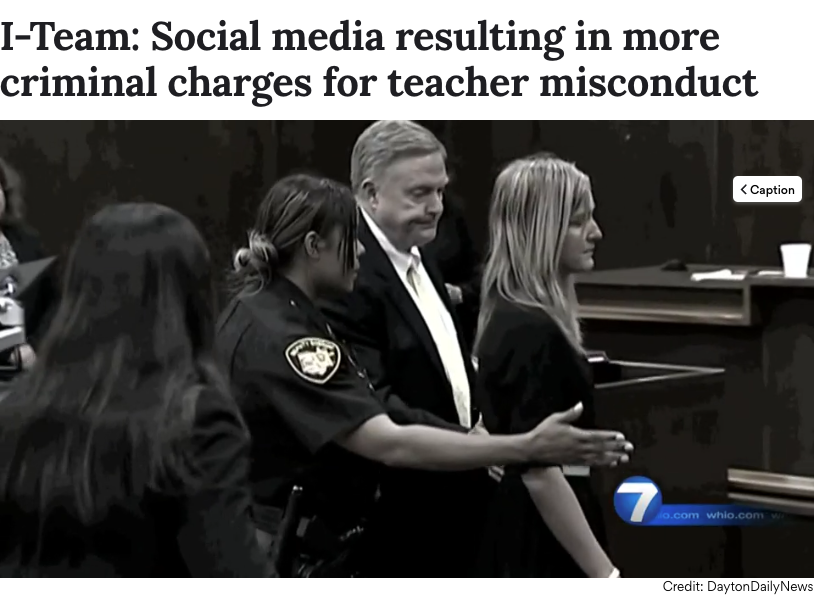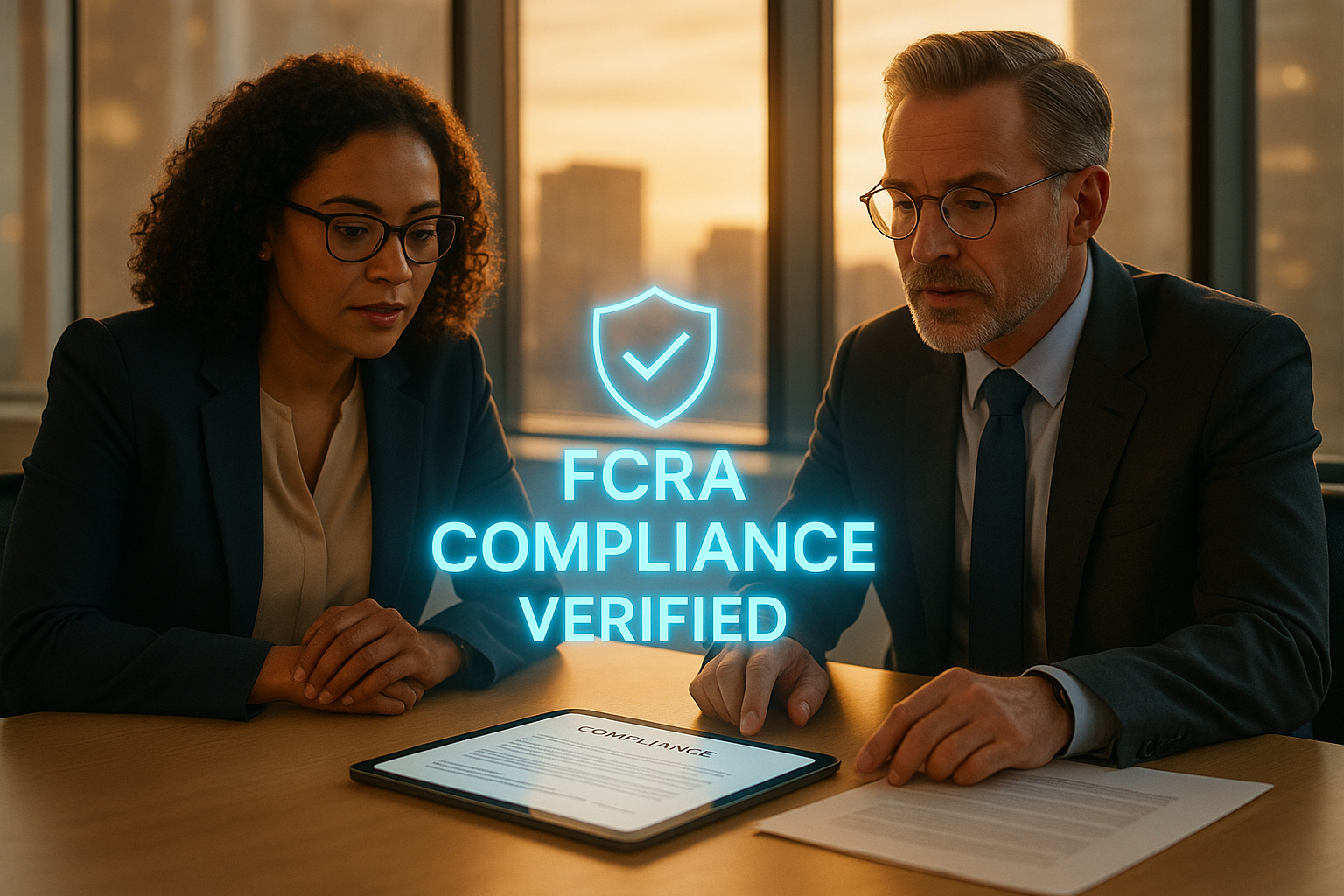Teacher Student Sexual Relationship Statistics: Addressing the Epidemic of Misconduct and the Critical Role of Social Media Screening

In recent years, an alarming number of cases involving teachers and administrators engaging in inappropriate relationships with students have come to light, highlighting the pervasive issue of educator sexual misconduct. This deeply troubling trend underscores the urgent need for proactive measures to protect our children and ensure a safe educational environment.
One such measure has proven highly effective - the comprehensive screening of social media activities for teachers and administrators. By adopting this approach, school districts can better safeguard their students from potential predators and build a stronger, more trustworthy educational system.
Understanding the Problem of Teacher-Student Sexual Misconduct
Teacher-student sexual misconduct is a pervasive issue that affects students, teachers, and the educational system as a whole. It is essential to understand the scope of the problem, its causes, and its consequences to develop effective prevention and intervention strategies. Research has shown that teacher-student sexual misconduct can take many forms, including verbal, visual, and physical abuse, and can have severe and long-lasting effects on students’ emotional, psychological, and academic well-being.
The impact of such misconduct extends beyond the immediate harm to the victim. It can create a culture of fear and mistrust within the school environment, affecting the overall learning atmosphere. Students who experience sexual misconduct may suffer from anxiety, depression, and a decline in academic performance. The trauma can also lead to long-term issues such as difficulty forming healthy relationships and a diminished sense of self-worth.
Understanding the multifaceted nature of teacher-student sexual misconduct is crucial for developing comprehensive strategies to combat it. This includes recognizing the various forms it can take and the profound impact it can have on students’ lives. By acknowledging the severity of the problem, schools can take proactive steps to protect their students and foster a safe and supportive educational environment.
The Scope of the Problem
Approximately 10% of public school students in grades 8-11 reported experiencing sexual misconduct by school staff.
The statistics surrounding teacher-student sexual misconduct are staggering. According to a 2018 report by the U.S. Department of Education, approximately 10% of public school students in grades 8-11 reported experiencing sexual misconduct by school staff.
Between 2010 and 2019, the number of complaints filed with the U.S. Department of Education’s Office for Civil Rights (OCR) alleging sexual violence against K–12 schools more than tripled.
More recently, a 2021 study conducted by the American Association of University Women (AAUW) revealed that incidents of sexual harassment and abuse by educators are underreported, with many cases never reaching the public eye due to fear of retaliation and societal stigma.
A comprehensive study by the Crimes Against Children Research Center found that 1 in 10 children will experience sexual misconduct by a school employee at some point during their school career. This disturbing statistic highlights the pervasive nature of this issue and the critical need for robust preventive measures.
Characteristics of Teachers Who Engage in Misconduct
Research has identified several characteristics of teachers and adults who engage in sexual misconduct with students. These individuals often exhibit a lack of empathy, a tendency to manipulate and groom students, and a disregard for professional boundaries. Teachers who engage in misconduct frequently use their position of power and authority to exploit and abuse students, employing tactics such as gaslighting, emotional manipulation, and coercion to control and silence their victims.
These adults may present themselves as caring and supportive, gaining the trust of students and their families. However, beneath this facade, they are adept at identifying vulnerable students and gradually crossing boundaries. They may start with seemingly innocent interactions, such as giving special attention or gifts, before escalating to more overtly inappropriate behavior.
Understanding these characteristics can help schools and administrators identify potential red flags and intervene before misconduct occurs. By being aware of the signs and behaviors associated with predatory teachers, schools can implement more effective screening and monitoring processes to protect students from harm.
Case Studies, News and Evidence of Teacher/Student Sexual Misconduct
Numerous cases across the United States illustrate the alarming trend of teacher misconduct facilitated through social media. According to the Dayton Daily News in Ohio, the Department of Education found 39 teachers with criminal sexual offenses in a single year, and 863 cases of conduct unbecoming (news article here contains a very informative video). In many of these cases, social media platforms like Facebook and Snapchat have been frequently used by teachers to initiate and maintain inappropriate relationships with students.

These incidents are part of a larger pattern of sexual abuse cases that highlight the need for institutional reforms and better reporting mechanisms.
Stories about teacher-student sexual misconduct have been ongoing. The Washington Posts’ 2018 article exposing the elite private Key School in Maryland and decades of sexual abuse opened the doors for news of many other incidents at private schools, often kept under raps. According to the Post article, “Key isn’t the first private school to have a culture of sexual abuse uncovered decades later. Scores of students were abused over decades at Horace Mann School in New York, a report commissioned by a group of the school’s alumni showed after the allegations were revealed in 2012. Last year (2017), Choate Rosemary Hall in Connecticut acknowledged that 12 former teachers molested students in the 1960s, and in 2016, the Boston Globe found that 67 private schools in New England faced accusations of sexual misconduct since 1991.”
More recently in the news about inappropriate teacher student relationships (and many similar articles can be found)
July 3, 2024, San Diego, CA: Ex-Mount Carmel High teacher pleads guilty to sex crimes with student
July 1, 2024, Houston, TX: Former HISD teacher accused of sex crimes with 14-year-old student bonds out of jail
June 28, 2024, Sarasota, FL: Sarasota deputies arrest high school teacher accused of sex crimes against student This individual was caught when, “Deputies said that (an anonymous) email detailed messages from a social media chat between Riddick and the student, leading to the teacher’s arrest.” “Deputies said that (an anonymous) email detailed messages from a social media chat between Riddick and the student, leading to the teacher’s arrest.” These cases are indicative of a broader issue of teacher sexual abuse, which continues to plague educational institutions across the country.
“Deputies said that (an anonymous) email detailed messages from a social media chat between Riddick and the student, leading to the teacher's arrest.”
Imagine how social media screening before hire or periodic re-screening post-hire could increase our children’s safety in the school environment.
Specific studies on the direct impact of social media screening on reducing incidents of teacher misconduct are limited but related evidence suggests its potential benefits. Enhanced monitoring and clear guidelines for social media use by teachers may reduce incidents of inappropriate conduct.
Schools that adopt comprehensive screening practices create a mechanism to prevent misconduct and foster a culture of accountability and safety. This cultural shift can lead to a more vigilant community where students, parents, and staff are all engaged in maintaining a safe educational environment.
The Role of Social Media in Facilitating Inappropriate Relationships
Social media has become a significant factor in facilitating inappropriate relationships between teachers and students. Platforms like Facebook, Instagram, and Snapchat provide a means for teachers to connect with students outside of the classroom, often under the guise of mentoring or tutoring. However, these online relationships can quickly escalate into inappropriate and abusive behavior, including sexting, cyberstalking, and online harassment.
The anonymity and accessibility of social media make it easier for teachers to initiate and maintain contact with students without the oversight of school authorities. This can lead to situations where boundaries are blurred, and inappropriate relationships develop. Teachers may use social media to groom students, gradually desensitizing them to inappropriate behavior and making them more susceptible to abuse.
Schools and educators must be aware of the risks associated with social media and take steps to prevent and address online misconduct. This includes implementing clear policies on social media use, educating students and staff about the dangers of online interactions, and conducting regular social media screenings to identify potential risks. By taking these measures, schools can help protect students from the dangers of inappropriate online relationships.
The Role of Social Media Screening in Schools
In today's digital age, social media has become an integral part of daily life. Teachers and administrators, like everyone else, use platforms such as Facebook, X, Instagram, and TikTok to share their thoughts, opinions, and activities. While the majority of educators use social media responsibly, there are instances where online behavior can reveal red flags that warrant closer examination.
Social media screening involves analyzing the public digital footprint of potential and current employees to identify any behaviors or affiliations that could indicate a risk to students. This proactive measure can help uncover evidence of inappropriate conduct, extremist views, or other concerning behaviors that may not be evident through traditional background checks.
Steps for Implementing Social Media Screening in Schools
For social media screening to be effective, it must be implemented thoughtfully and ethically. Implementing social media screening can help identify potential risks and prevent incidents of teacher sexual misconduct. Here are key steps school districts can take to integrate social media screening into their hiring and monitoring processes:
Policy Development
Establish clear policies outlining the scope and purpose of social media screening. These policies should address various forms of misconduct, including physical sexual abuse, to ensure comprehensive protection for students. Ensure these policies comply with privacy laws and respect the rights of employees.
Transparent Communication
Inform potential and current employees about the screening process and its importance in maintaining a safe school environment. Transparent communication is crucial to ensure that all students feel safe and supported.
Collaboration with Experts
Partner with organizations specializing in social media background checks to leverage their expertise and ensure thorough and accurate assessments. Partnering with organizations like the American Association of University Women Educational Foundation can provide valuable insights and resources.
Ongoing Screening
Implement periodic screening to identify any emerging risks and address them promptly. Ongoing screening helps identify any emerging risks and prevent inappropriate sexual relationships between teachers and students.
Training and Education
Provide training for school staff on appropriate social media use and the potential consequences of misconduct. Training should be provided to all school employees to ensure they understand the boundaries and consequences of misconduct.
Addressing Incidents of Sexual Misconduct
Addressing incidents of sexual misconduct requires a comprehensive and multi-faceted approach. Schools must have clear policies and procedures in place for reporting and investigating incidents of misconduct, and must provide support and resources for victims. This includes counseling, advocacy, and academic support, as well as protection from retaliation and harassment.
Effective policies should outline the steps for reporting misconduct, ensuring that students feel safe and supported when coming forward. Schools must also establish protocols for conducting thorough and impartial investigations, holding perpetrators accountable, and taking appropriate disciplinary action.
In addition to responding to incidents, schools must take proactive steps to prevent misconduct from occurring in the first place. This includes providing training and education for teachers and staff on professional boundaries, consent, and healthy relationships. By fostering a culture of respect and accountability, schools can create an environment where sexual misconduct is less likely to occur.
Ultimately, addressing sexual misconduct in schools requires a commitment to creating a safe and supportive environment for all students. By implementing comprehensive policies, providing support for victims, and promoting education and awareness, schools can take significant steps toward preventing and addressing sexual misconduct.
Conclusion
The safety and well-being of students must be the top priority for school across the country. The disturbing prevalence of teacher-student sexual misconduct demands immediate and effective action. Ferretly's social media screening platform offers a powerful tool to identify and mitigate risks, ensuring that only those who are committed to the highest standards of conduct are entrusted with the education and care of our children. By adopting comprehensive social media screening practices, school districts can take a significant step toward eradicating this epidemic and fostering a safe, nurturing educational environment.
Schedule a demo with Ferretly, the leading platform for social media background checks, and let us be your partner in implementing a process and standard to keep children safe in the school environment.






